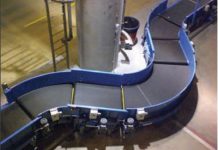
For the fifth consecutive year, Team ACTor — an acronym for autonomous campus transport — of Southfield’s Lawrence Technological University (LTU) has won the championship at the annual Intelligent Ground Vehicle Competition (IGVC) hosted at Oakland University in Rochester Hills.
LTU’s modified Polaris GEM electric two-seat city car successfully navigated a course full of obstacles set up in an OU parking lot to win the crown, beating out second-place Kettering University.
“This competition gets tougher every year, so to win it five years in a row is a real tribute to the AI, robotics, and computer science talent we have at Lawrence Tech,” says C.J. Chung, professor of computer science at LTU and one of the team’s faculty advisors.
LTU student team members are Giuseppe DeRose, an adjunct professor of mechanical engineering who is also studying for a master’s degree in computer science at LTU; Joseph Schulte, Mark Kocherovsky, Justin Dombecki, and Adilur Choudhury. Team co-advisors are Nick Paul, an LTU alumnus and LTU adjunct professor of computer science, and Mitchell Pleune, former ACTor team member and computer science graduate of LTU.
The IGVC was established in 1993 by the U.S. Army’s Combat Capabilities Development Command Ground Vehicle Systems Center in Warren, formerly known as TARDEC, and the Association for Unmanned Vehicle Systems International Foundation.
The original competition, now called the Auto-Nav (autonomous navigation) Challenge, has small vehicles about the size of a dishwasher navigate autonomously around a track, using a combination of sensors.
But in 2017, as autonomous car technology began to blossom, IGVC added a second division, the Self-Drive Challenge, for actual road-worthy passenger vehicles. LTU won that competition in 2017 and has won it every year since. The school now owns two Polaris GEM electric two-seat city cars that have been modified with self-driving sensors and used for research in developing self-drive algorithms.
A total of 26 universities from around the world competed this year, coming from as far as India and Japan. It’s the first time there were international competitors since 2019 due to the pandemic.
Due to a rule change this year in which scores in the newer Self-Drive Challenge and the original Auto-Nav Challenge were weighted equally, Lawrence Tech also won IGVC’s top overall award — the Lescoe Cup. In addition, LTU team co-won the Dr. William G. Agnew Design Competition Award with an Auto-Nav team from Hosei University in Tokyo.
LTU has long been a leader in autonomous vehicle technology. This summer, eight college students from around the country are on LTU’s campus working with Chung on developing algorithms for self-driving vehicle. The students are scheduled to give a public presentation of their self-driving technologies in mid-July.
IGVC sponsors for 2022 included RoboNation Inc., Hyundai MOBIS, the National Defense Industrial Association Michigan Chapter, Robotic Research, Veoneer, MSU Federal Credit Union, I Am Robotics, FEV, Dataspeed Inc., General Dynamics Land Systems, and the National Advanced Mobility Consortium.
Thanks to sponsors, the LTU team received a $5,000 prize.











